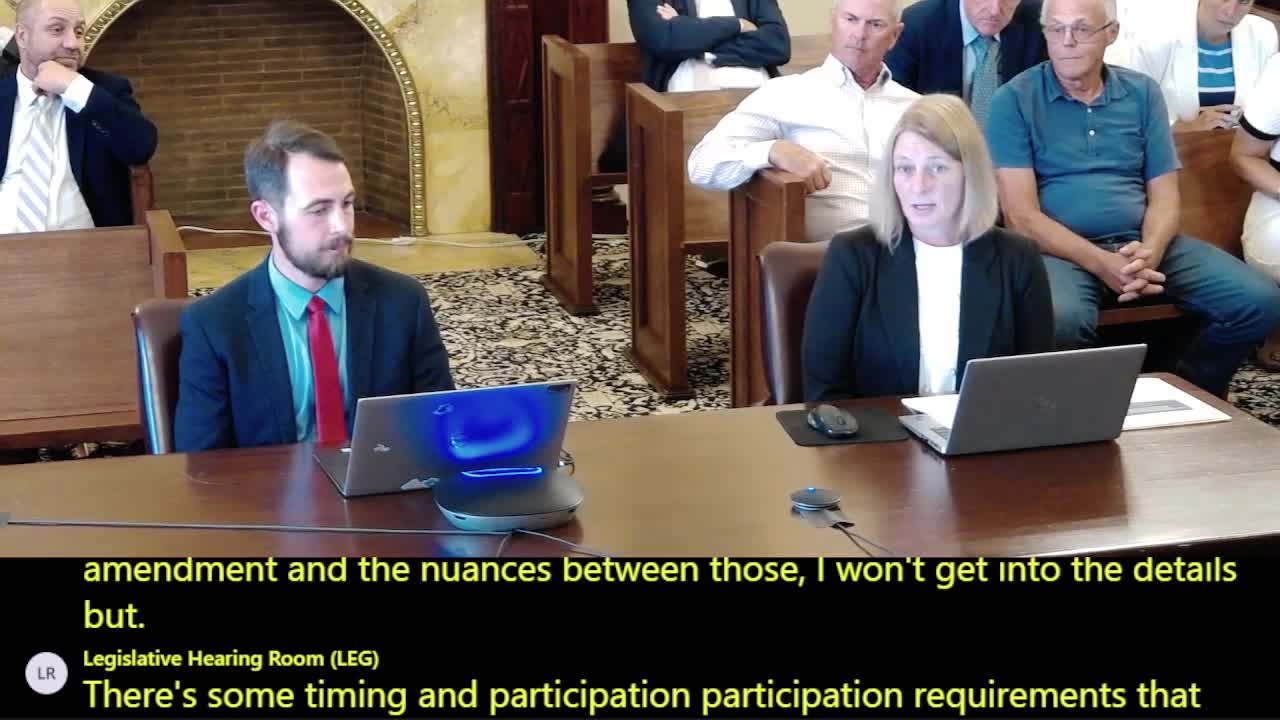Joint Plan Advances Habitat Protection Measures for Scallop Resource and Groundfish Species
July 30, 2025 | 2025 Legislature MA, Massachusetts
This article was created by AI summarizing key points discussed. AI makes mistakes, so for full details and context, please refer to the video of the full meeting. Please report any errors so we can fix them. Report an error »

A new framework aimed at balancing habitat protection and fishing access is on the horizon following discussions at the Massachusetts Senate Committee on Intergovernmental Affairs meeting on July 30, 2025. The committee explored a joint plan that addresses the habitat impacts in designated areas of particular concern, particularly focusing on the sustainability of key marine species such as juvenile cod, American lobster, and Atlantic herring.
The proposed framework is designed to streamline the process of accessing rotational fishing areas, potentially allowing for quicker implementation than traditional amendment procedures. This approach comes in response to concerns about habitat damage rather than direct mortality rates of fish populations, as the area in question is noted for its relative abundance of species.
Committee members emphasized the importance of understanding how habitat health correlates with the productivity and survivability of various marine species. Extensive research has been conducted to assess the significance of these habitats, particularly in relation to the scallop population on George's Bank. While definitive answers remain elusive, the committee acknowledged the need for a comprehensive analysis of the habitat's role in supporting marine life.
In addition to habitat considerations, discussions also touched on the potential for further gear restrictions to enhance protection for spawning areas and refuges for vulnerable species. This reflects a growing recognition of the need to balance commercial fishing interests with ecological sustainability.
As the committee moves forward, the implications of this framework could significantly impact both the fishing industry and marine conservation efforts in Massachusetts, highlighting the ongoing challenge of managing natural resources responsibly.
The proposed framework is designed to streamline the process of accessing rotational fishing areas, potentially allowing for quicker implementation than traditional amendment procedures. This approach comes in response to concerns about habitat damage rather than direct mortality rates of fish populations, as the area in question is noted for its relative abundance of species.
Committee members emphasized the importance of understanding how habitat health correlates with the productivity and survivability of various marine species. Extensive research has been conducted to assess the significance of these habitats, particularly in relation to the scallop population on George's Bank. While definitive answers remain elusive, the committee acknowledged the need for a comprehensive analysis of the habitat's role in supporting marine life.
In addition to habitat considerations, discussions also touched on the potential for further gear restrictions to enhance protection for spawning areas and refuges for vulnerable species. This reflects a growing recognition of the need to balance commercial fishing interests with ecological sustainability.
As the committee moves forward, the implications of this framework could significantly impact both the fishing industry and marine conservation efforts in Massachusetts, highlighting the ongoing challenge of managing natural resources responsibly.
View full meeting
This article is based on a recent meeting—watch the full video and explore the complete transcript for deeper insights into the discussion.
View full meeting
